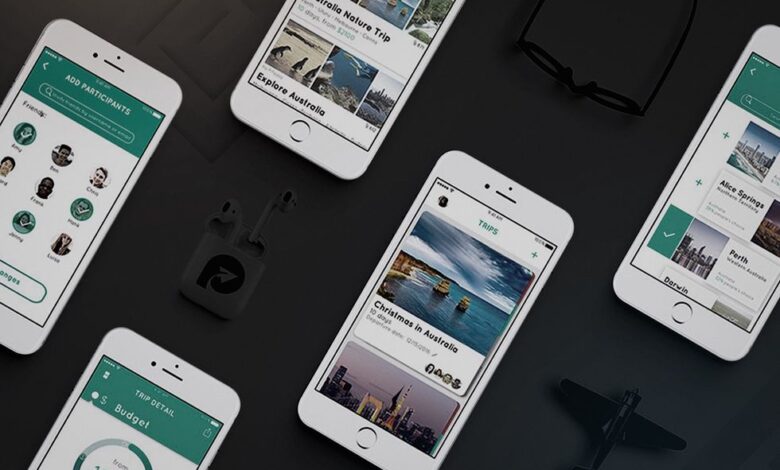Navigating the Future: Innovations in Travel App Development

In today’s fast-paced world, the travel industry stands at a crossroads of innovation and digital transformation. With the advent of smartphones and ubiquitous internet connectivity, travelers’ expectations have evolved dramatically. They seek personalized experiences, seamless booking processes, real-time updates, and on-the-go convenience—all of which are made possible through cutting-edge travel applications.
Evolution of Travel Apps
Travel apps have come a long way from their humble beginnings as basic itinerary planners to sophisticated platforms that integrate booking, navigation, recommendations, and social sharing. The evolution has been driven by advancements in mobile technology, data analytics, artificial intelligence (AI), and machine learning (ML).
Initially, travel apps focused on providing essential information such as flight schedules, hotel bookings, and local attractions. However, with the proliferation of smartphones and the rise of app ecosystems, developers began harnessing GPS technology to offer location-based services, real-time updates, and personalized recommendations tailored to individual preferences.
Key Features and Functionalities
Today, a successful travel app goes beyond mere booking capabilities. It leverages AI and ML algorithms to analyze user behavior, predict travel preferences, and offer customized suggestions. For instance, AI-powered chatbots provide instant customer support, while ML algorithms optimize pricing strategies based on demand forecasts.
Moreover, travel apps integrate social media functionalities, allowing users to share their experiences, reviews, and recommendations with friends and followers. This social aspect not only enhances user engagement but also serves as a powerful marketing tool for travel businesses.
Personalization and User Experience
Personalization is at the heart of modern travel apps. By gathering and analyzing data from user interactions, preferences, and past bookings, these apps can offer tailored recommendations, exclusive deals, and customized travel itineraries. This enhances user satisfaction and loyalty, as travelers feel understood and catered to on an individual level.
Furthermore, seamless user experience (UX) is crucial for the success of travel apps. From intuitive interfaces to smooth navigation and quick loading times, every aspect of the app’s design is optimized to ensure a frictionless experience for users. Features like offline access to travel information and integration with digital wallets add to the convenience, especially for travelers exploring unfamiliar destinations.
Emerging Technologies Shaping the Future
Looking ahead, several emerging technologies hold the potential to further revolutionize travel app development:
- Augmented Reality (AR): AR can enhance the travel experience by providing virtual tours, real-time translations, and interactive maps overlaid with information about landmarks and points of interest.
- Blockchain: Blockchain technology offers secure, transparent transactions and streamlined booking processes, reducing fraud and ensuring trust between travelers and service providers.
- Internet of Things (IoT): IoT devices such as smart luggage tags and hotel room sensors can automate check-ins, personalize room settings, and provide real-time updates to travelers.
Challenges and Opportunities
While the future of travel apps looks promising, developers must navigate challenges such as data privacy concerns, cybersecurity threats, and the need for seamless integration with existing travel infrastructure. Moreover, staying ahead in a competitive market requires continuous innovation, adaptation to evolving consumer expectations, and agile development processes.
Opportunities abound for travel app developers who can leverage data-driven insights, embrace emerging technologies, and collaborate with industry stakeholders to create compelling user experiences. By harnessing the power of AI, ML, and other cutting-edge technologies, developers can not only meet but exceed travelers’ expectations, driving growth and differentiation in the fiercely competitive travel industry.
Conclusion
In conclusion, the journey of travel app development is marked by continuous innovation and adaptation to technological advancements. From enhancing personalization and user experience to embracing emerging technologies like AI and blockchain, developers play a pivotal role in shaping the future of travel.
As we navigate this evolving landscape, the focus remains on creating seamless, intuitive, and personalized experiences that empower travelers to explore the world with ease. By staying at the forefront of technological innovation and understanding the evolving needs of travelers, developers can unlock new opportunities and redefine the future of travel app development.
Navigating the Future: Innovations in Travel App Development encapsulates not just a technological journey but a transformative shift in how we experience and engage with the world through digital platforms. As we look ahead, the possibilities are limitless, promising a future where travel is not just about reaching a destination but about enjoying a seamless, personalized journey every step of the way.



